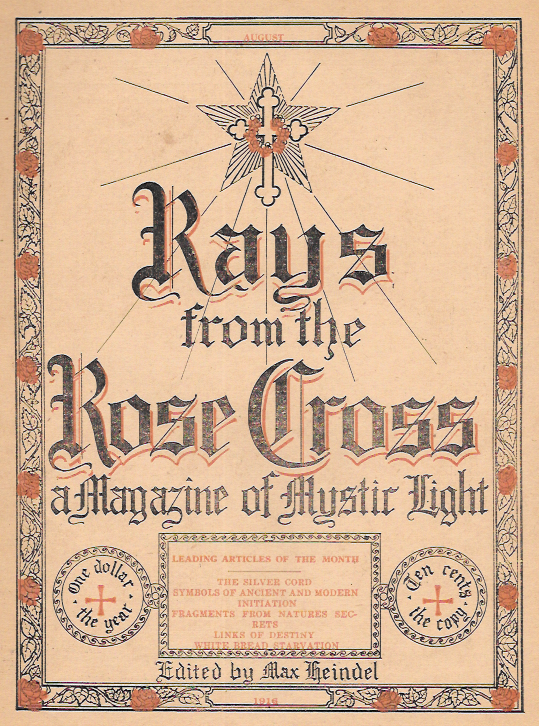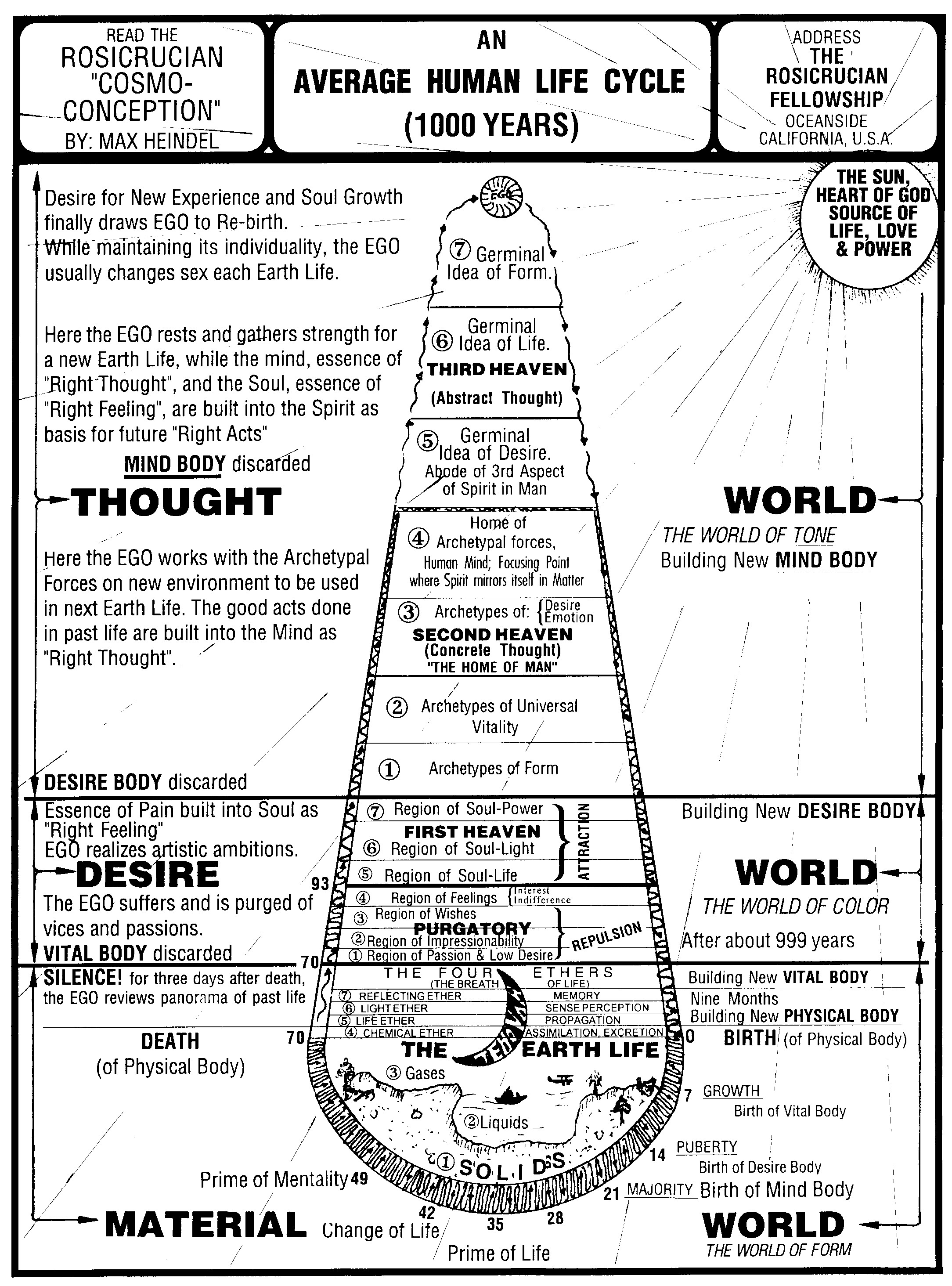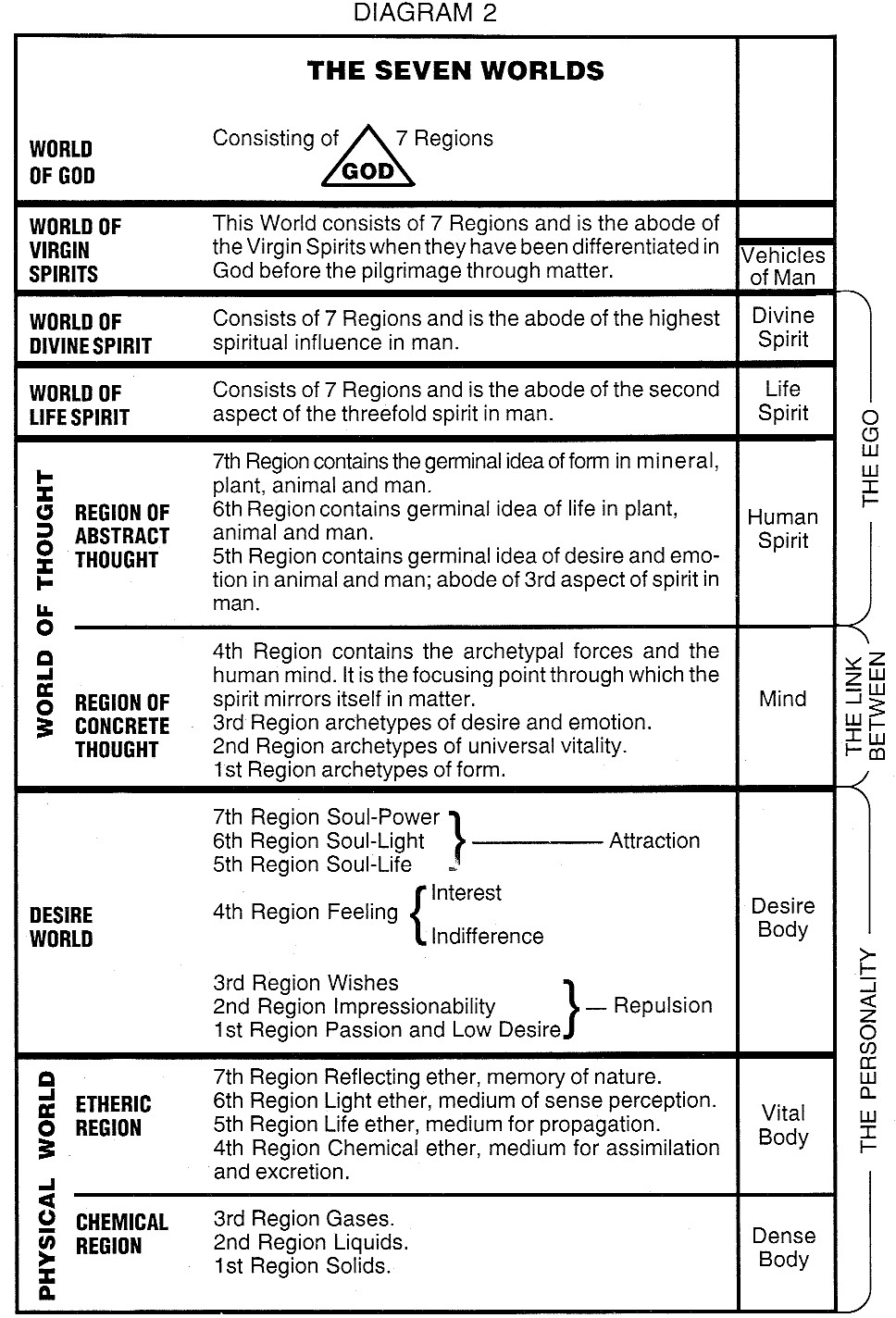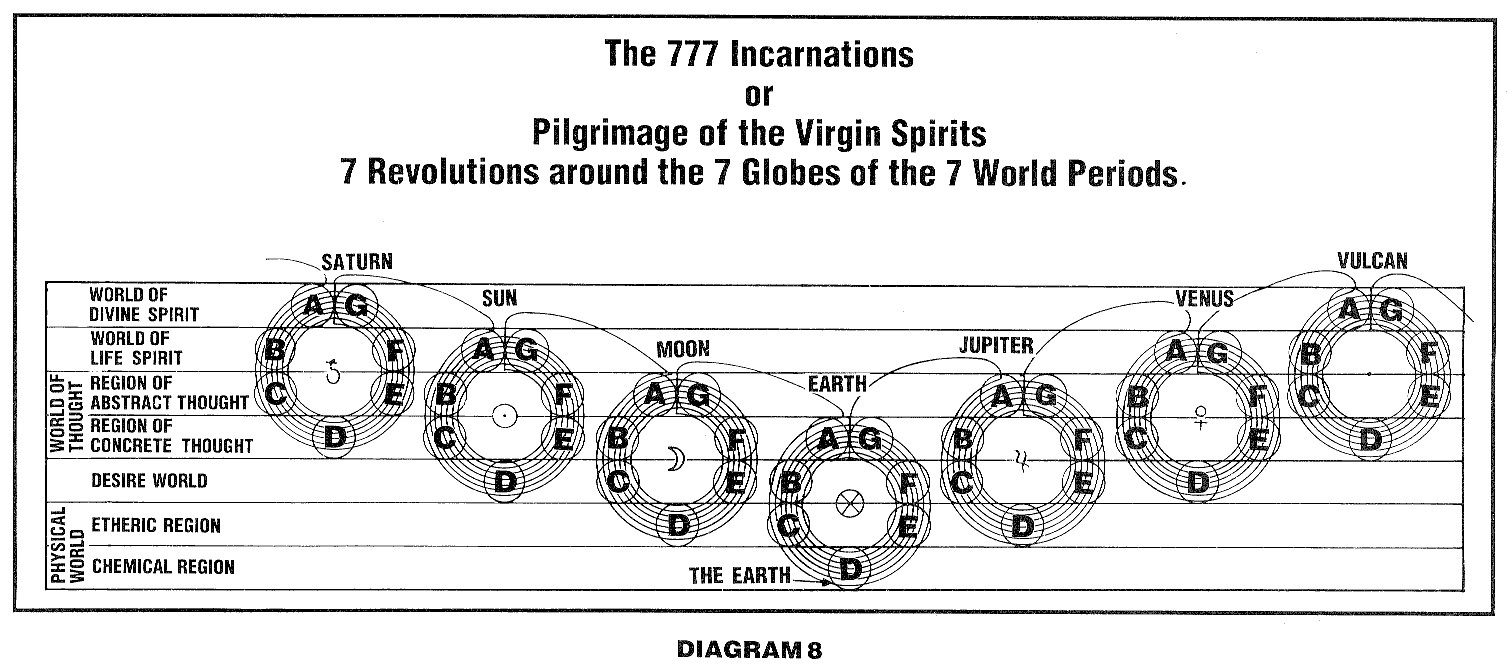
| rosicrucianU.com | ||
| Simplified Scientific Christianity |

My mother was astrological secretary with Augusta and Max Heindel, beginning with early 1914. The Fellowship was small in numbers but was a happy and harmonious family. Mother came up to Los Angeles frequently on weekends and very shortly brought me a Cosmo to read. I was impressed with its clear and rational presentation of occult truths, and when Max Heindel came to speak at the Los Angeles Center, I went to hear him. When we met, each of us knew instantly that we were old friends from previous lives.
Being invited to come down to Oceanside, I boarded the Santa Fe train the next weekend, and upon alighting saw a tiny little village of about two blocks and a scattering of a few homes. I walked the two miles of gravel road to the Fellowship grounds, and found that Headquarters consisted of an administration building (housing all activities), a small chapel, and about three cottages.
Subsequently making frequent weekend trips to Oceanside, I became well acquainted with Mr. and Mrs. Heindel, and whenever there was an accumulation of work in setting up and reading the horoscopes of applicants for help, I assisted Mrs. Heindel and my mother. Usually after the Sunday morning service, Max Heindel and I sat on a bench near the spot where the Rose Cross Emblem is now. We chatted about many subjects of mutual interest: astronomy, astrology, the Philosophy, and the sciences, always including refreshing little human reminiscences and a joke or two. Those were delightful times.
One Sunday morning, as we left the Chapel, a visitor walked along with us, mentioning how much he liked the accordion. Mr. Heindel said: "Well, accordion is the common name, but the classical name is 'come to me, go from me." We laughed heartily, and I have recalled the incident countless times. One day while helping Mrs. Heindel with the horoscopes I called her "Aunt Gussie." She liked it and suggested that I always call her that. I said I would be happy to, but added that then Mr. Heindel would need to be "Uncle Max," so henceforth they were, and became a cherished uncle and aunt.
On one trip to Oceanside, the regular service and the Moon Meeting coincided, and I was asked to speak at the regular service, while "Uncle Max" conducted the Moon Meeting. There was a vacant chair left in the front row, and presently the Brother was there.
I had been teaching the Los Angeles Philosophy Class for some time, particularly the Scheme of Evolution. One day, as I sat down at the piano for practice, I saw that the entire scheme, as so beautifully portrayed in the Cosmo was on the keyboard—the significance of the five Hierarchies that gave us some help and then passed into liberation, and also the seven that were to further their involution and evolution in regular progression, to minute detail. On the next trip to Oceanside, I described what I had done. "Uncle Max" was impressed and suggested that I write it all out, with an explanatory diagram. I did so and he published it in the March, 1917, issue of Rays from the Rose Cross.
I felt that I knew Max Heindel better than most other people, and there is a reason for this. When an author is read and studied, the salient features of his nature are quite apparent, but the other facets of his composite being are not. They are more or less hidden behind the work he concentrates upon. In intimate, personal association, the other sides reveal themselves. We were able to discuss the reverent, devotional aspirations, the comprehension of the cultures, music, art, the sciences, and in addition, the human, so essential to balanced development.
Max Heindel was a living example of the precepts of the Rosicrucian Fellowship Teachings: "A sane mind, a soft heart, a sound body," and the counterpart: "Be ye wise as the serpent, strong as the lion, harmless as the dove." He knew that the Elder Brothers frowned upon organization in general, and sought carefully to avoid any more than was necessary for carrying on administration. Also, he was keenly aware that our real progress along the path of illumination was from within—"the temple without sound of hammer." He decried any form of regimentation, and frequently emphasized that we should not too suddenly strive to become so enlightened that we would lose the value of experience of the particular horoscope we had chosen for that very purpose.
He tried, valiantly, to stress the reverent, devotional nature of the mystic, the occult side of intellectual comprehension, and to balance them with sufficient of the wholesome, human influences for rational unfoldment. It was a privilege to have worked with him.
— Rays from the Rose Cross Magazine, February, 1965, p. 64, 83

|

|

|
|
|
Contemporary Mystic Christianity |
|
|
This web page has been edited and/or excerpted from reference material, has been modified from its original version, and is in conformance with the web host's Members Terms & Conditions. This website is offered to the public by students of The Rosicrucian Teachings, and has no official affiliation with any organization. | Mobile Version | |
|